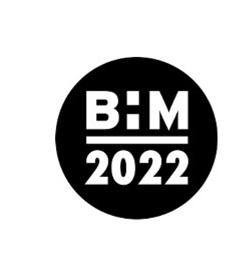To mark Black History Month, one of our Senior Investigators looks at the meaning of diversity training, and why it is so valuable to the Civil Service today.

Whenever I write an article for Black History Month (BHM), I would normally focus on an issue specifically race-related, given the purpose of BHM. However, on this occasion, I will offer a sociological perspective on a topic that has been discussed across various media since the summer. The topic in question is “Training” - primarily the provision of diversity training in the Civil Service.
Having followed the discourse closely and listened to the those advancing the argument that such training is without value, it strikes me that they don’t experience diversity across its many forms where they live or within their social circles – whether that be racial, cultural or even diversity of thought. You can even make the argument that a firm grounding in diversity imbues people who embrace it with a greater sense of respect.
Therefore, the posit that diversity training is a waste of time and money is not reality for a large proportion of the population. The business case for diversity has been well made across the private sector. Indeed, we are constantly told that business principles should be applied to the public sector to enable all sorts of wonderful things, however diversity in its most basic form has been singled out as an exception. This creates an absence of any acceptance that systemic bias against certain groups exists and how such biases might be ameliorated by way of training.
It should be noted that the word “diversity” is viewed by some unfamiliar with the concepts of equality and social equity as a synonym for “race” and this confusion usually comes from colleagues outside the working class. The diversity agenda is largely the implementation of equality legislation, which should be logical, but for those with less contact with people from diverse backgrounds, diversity in the workplace means that the elites are now being surrounded by people among whom they are discomforted.
For example, take a situation I witnessed over a decade ago, when I attended an event in London. The venue was wholly non-compliant for disability purposes – not even a single ramp in place. Two wheelchair users happened to turn up and they had to be lifted onto a mezzanine, by those who accompanied them, rendering them effectively “hidden” and invisible to other attendees. One shudders to think what could have happened if a fire had broken out. At the time, working as an Estate Project Planner in His Majesty's Revenue and Customs, I used that experience to amend the Department’s Estate Disability Strategy that I was authoring, as well as including it as a case study in our diversity training sessions.
It doesn’t matter how much anti-discrimination legislation that is put in place. We cannot legislate for attitudinal discrimination in the workplace, based on ignorance, lack of knowledge and understanding of those who don’t look like them, sexually orientated as they are or gendered as they are. Particularly when that attitude is from leadership but clearly conflicting with Civil Service values.
It is interesting that people who do not experience discrimination feel they should have a say in denying protection to those who do. Being ‘woke' means to be aware; the bubbles in which some people live, remove them from the pain and ruination discrimination can cause and leave them completely unaware. Let's be clear on the objective: to create a workplace where people can focus on the job they are being paid to do, without threat or fear and in comfort. This is the role that diversity training plays and it is vitally important that those issues continue to be addressed.
- Vivienne Connell-Hall (PhD), Senior Investigator